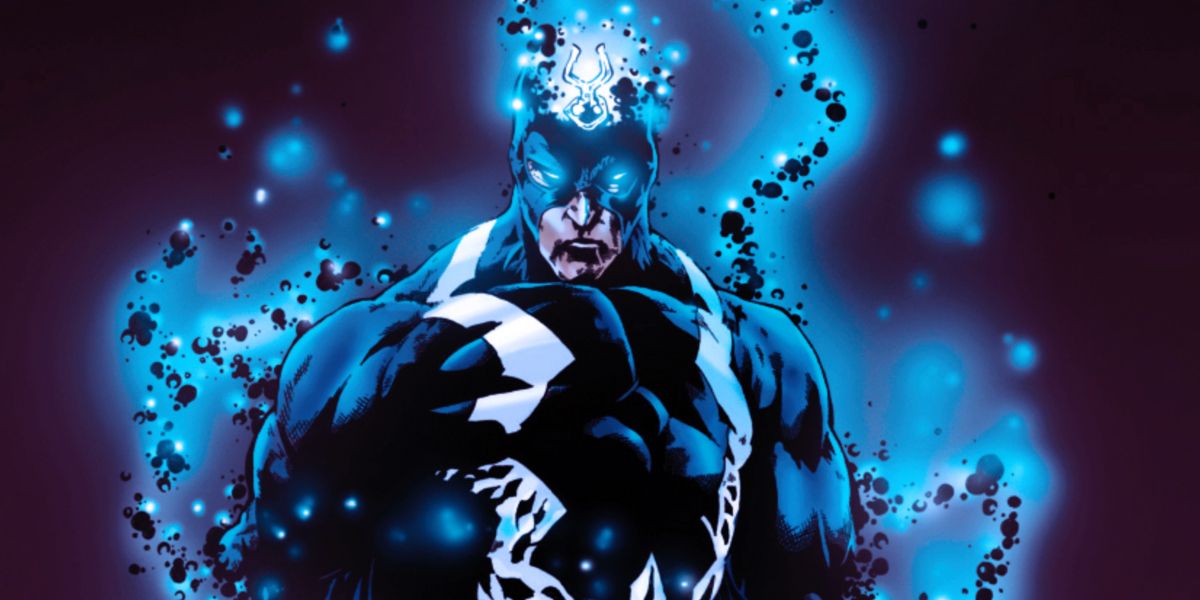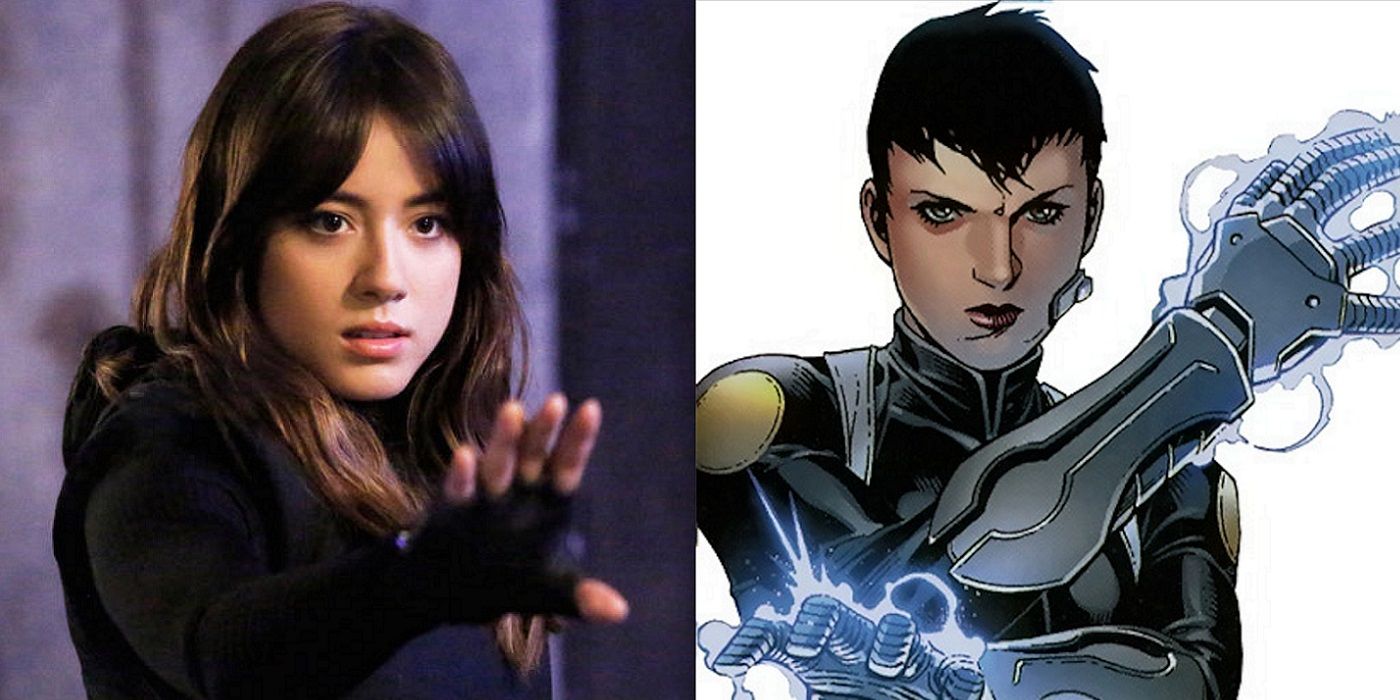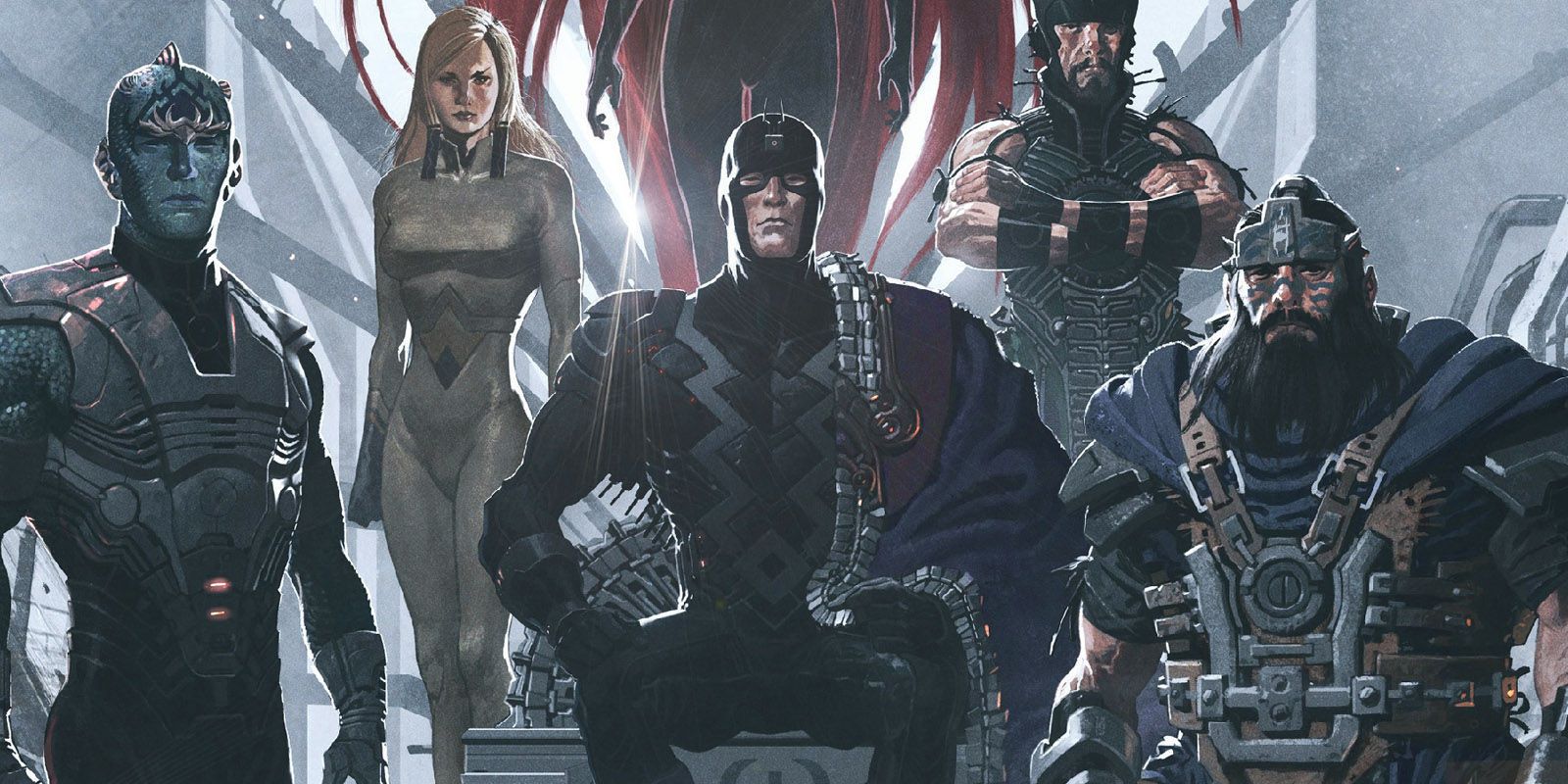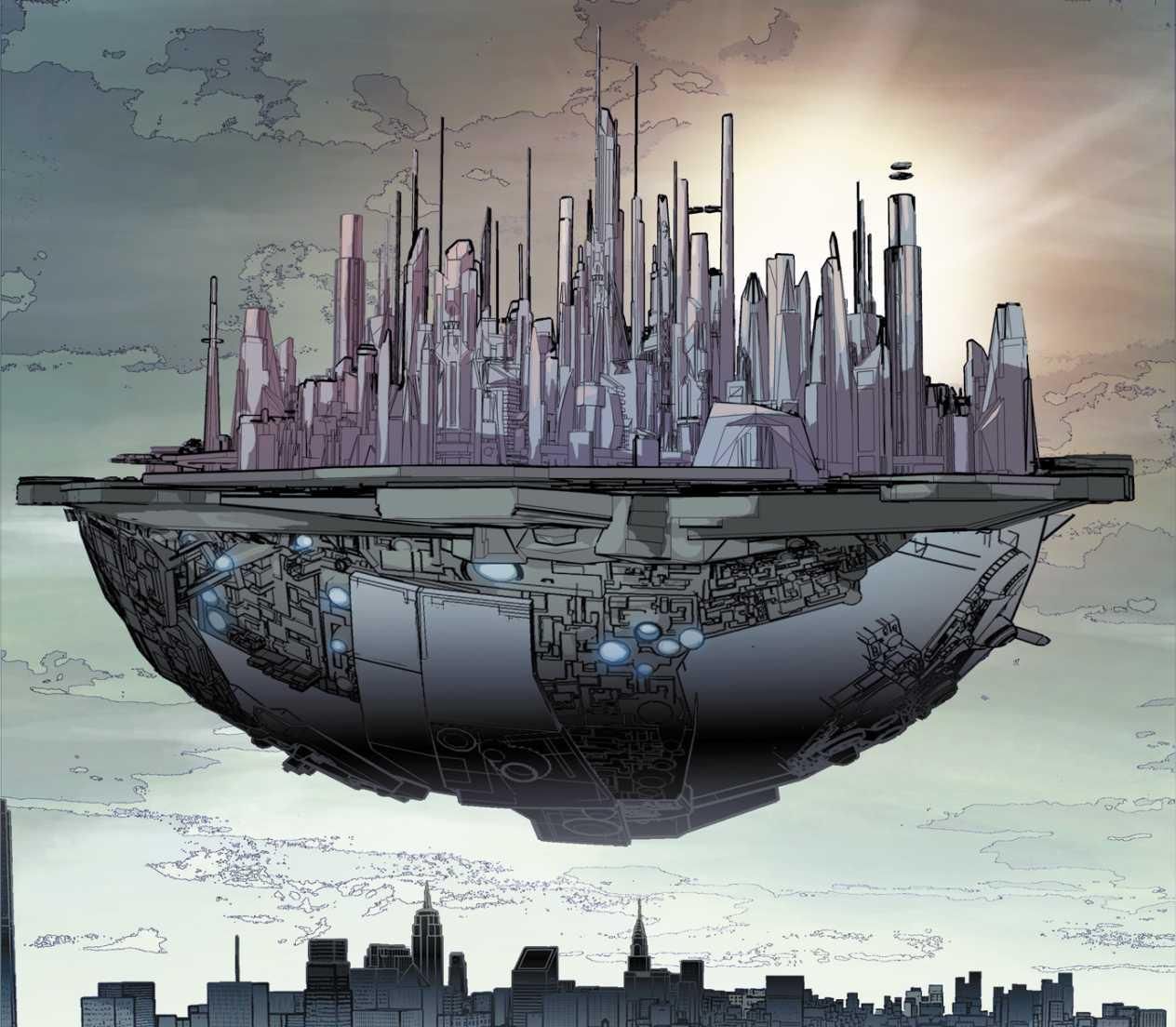After announcing just a little over two years ago that the long-in-development Inhumans would be arriving on the big screen, Marvel Studios subsequently pulled the film from its docket, leaving many to wonder whether the project was effectively dead in the water. We finally got an answer to that question late last night: Marvel TV has rescued the property and will deliver it as an all-new television series next September on ABC.
The move was a surprising one, but, in retrospect, it’s also a perfectly understandable one, given how the vast bulk of Marvel’s first television series, Agents of S.H.I.E.L.D., has been devoted to the Inhumans and establishing not only their backstory, but also forging a brand-new place for them in the present-day world. There are several other strengths that are inherent to the TV format, offering the potential for a vast narrative canvas to be laid out.
Of course, every strength has a corresponding weakness, and The Inhumans will face its fair share of challenges in making the journey from big-budget blockbuster to serialized TV show. If executed properly, however, that journey needn't necessarily be a downgrade; Inhumans may actually be better suited to TV.
The S.H.I.E.L.D. connection
There is, much to fans’ chagrin, a growing schism between the film and television divisions of Marvel Entertainment, and this divide has prevented the various movies from piggybacking off of the momentum developed on the small screen. Given that Agents of S.H.I.E.L.D. formally introduced the Inhumans in its second season, and has blown the lid off the alien-engineered peoples in the two subsequent years, that’s a lot of buildup to leave completely neglected - yes, even though The Inhumans will follow the Royal Family instead of the various “street-level” communities that S.H.I.E.L.D. contends itself with.
And that’s not even taking into consideration a new narrative element that’s now open to the Inhumans series: crossovers. The current director of S.H.I.E.L.D., Jeffrey Mace (Jason O’Mara), is a member of the superpowered group; former agent Daisy Johnson (Chloe Bennet) is not only the Inhuman known as Quake, she also used to be in charge of the so-called Secret Warriors, a short-lived S.H.I.E.L.D. program to incorporate the alien individuals into a small, Avengers-esque strike team; and even Phil Coulson himself has some Kree blood running through his veins, making him more understanding and tolerant of the increasingly-targeted group. Any of these individuals can not only make the occasional guest appearance on the new series, they could also become regular cast members.
There’s one final cue from its sister ABC production that The Inhumans can pick up on. We’ve called Agents of S.H.I.E.L.D. the heart of the Marvel Cinematic Universe, and it’s a sentiment that only continues to strengthen the longer the show’s on the air. Agent Phil Coulson (Clark Gregg) and his team continually find themselves in a position not only to pursue their own narrative – namely, tracking the rise of the Inhumans worldwide – but also to intersect with the various happenings of the Marvel movies themselves, whether it be providing support for The Avengers: Age of Ultron’s assault on Sokovia or weighing the consequences of the Sokovia Accords from Captain America: Civil War.
The Inhuman Royal Family is now afforded the same luxury, having the ability to intersect with all the developments across the entire shared universe – including the potential to have a similar parade of familiar faces show up in the series, ranging from Nick Fury (Samuel L. Jackson) to Lady Sif (Jaimie Alexander) to President Matthew Ellis (William Sadler). This could ultimately be even more important to The Inhumans than to Agents of S.H.I.E.L.D., given just how long the royals have been isolated from the rest of the planet.
The advantages of TV storytelling
Marvel TV has more to offer than simply being the home to an existing, extremely well-connected series. Though film can seem to draw on a bigger canvas to tell its stories than television - with bigger budgets, longer production times, and a variety of locations to shoot at - the small screen can develop a bigger, more expansive story across many episodes with a far greater collection of characters and plotlines. It’s impossible to imagine a show such as Game of Thrones, with its dozens of leads and jumble of different narratives, as a movie (or even a series of movies), and Westworld’s ability to slowly sketch out and then fill in its characters – and their relationships with one another – is only possible thanks to the slow burn that its 10 episodes afford.
Much more so than any of the previous Marvel undertakings, this is crucial for The Inhumans: the dozen or so members of the Royal Family can only really get their moment to shine in the narrative sun on television, and the typical intrigues and jealousies and betrayals that afflict royal courts everywhere just wouldn’t be possible as a feature film franchise. And given that much of the Inhumans’ history has yet to be revealed (Agents of S.H.I.E.L.D. is more interested in their present and potential future) and that the Kree (which were only featured in Guardians of the Galaxy on the film side) can still play a major role in the royals’ story moving forward, there is more than enough material to fuel multiple seasons.
Thanks to recent shows continuing to push the financial barrier of the medium – and thanks to technology always progressing at a brisk clip, opening up movie-quality visual effects pretty regularly – the gap between television and film is shortening. The aforementioned Game of Thrones is ample proof of this by itself, but a number of recent original Netflix additions, such as The Getdown and The Crown, make the point even further by hitting the incredible $10-million-an-episode budget threshold. While ABC probably won’t be able to spend quite that much on The Inhumans, it still points to a path that is significantly more expansive than what may otherwise have been originally thought.
The potential drawbacks
Before you get too excited, however, there are some potential drawbacks to the move that need to be addressed. Though these, even in aggregate, aren’t enough to necessarily derail the success or quality of the Inhumans TV show, they are enough to give even the biggest of MCU viewers pause, if not a reason to be outright concerned.
The first of these once again relates to Agents of S.H.I.E.L.D.: what if this new series isn’t contemporaneous with its sister ABC show? What if it’s a prequel, showing what the Royal Family is up to well before Phil Coulson is brought back from death thanks to the Kree’s peculiar genetics and subsequently learns of the superpowered community that has spawned from similar biological encounters? The narrative avenue would be strikingly narrowed, and it would preclude a number of appearances from the rest of the Marvel Cinematic Universe – especially considering the thoroughly isolated nature of the show’s main characters.
The bigger problem here, though, has to do with the very premise of the show itself. The Inhumans are like the X-Men: individuals brandishing powers that are larger-than-life and which, therefore, all but demand the bigger budget and longer production cycle of films in order to pull them off realistically. The powers seen on Agents of S.H.I.E.L.D. thus far have been pretty limited, including concentric-circle quake blasts, self-duplication, pyrotechnics, and teleportation. Black Bolt’s “supersonic scream,” Medusa’s “prehensile hair,” and Triton’s aquatic abilities – not to mention the teleporting dog Lockjaw and the family’s constantly-moving city of Attilan – would all be difficult to pull off effectively on the small screen.
There’s one final constraint that needs to be addressed. Unlike either S.H.I.E.L.D. or the various Netflix productions, which have consistently found a way to keep their various characters and their exploits segregated from the rest of the Marvel Cinematic Universe, The Inhumans will have no such plausible deniability - particularly if the studio wishes to even remotely follow the path the comics have been laying out as of late. If the Royal Family, along with the rest of the various, ever-more-expanding Inhuman communities all over the rest of the world, is to have any future whatsoever, they’ll need to interact with the Guardians of the Galaxy, the Kree and, of course, the Avengers themselves. Conversely, it’ll be hard for the movies to ignore the giant, floating city-from-the-future Attilan, especially when it’s combined with the global spread of the Inhumans – and the backlash that development has caused worldwide – that has been going on over the past two years in S.H.I.E.L.D..
Put simply, an Inhumans television series just might be the tipping point of shared-universe believability, although we will, of course, have to wait another 10 months to see for sure.
Agents of S.H.I.E.L.D., season 4 returns Tuesday, November 29 at 10:00 pm on ABC. The Inhumans will premiere its first two episodes in IMAX in September 2017 before debuting on ABC.




